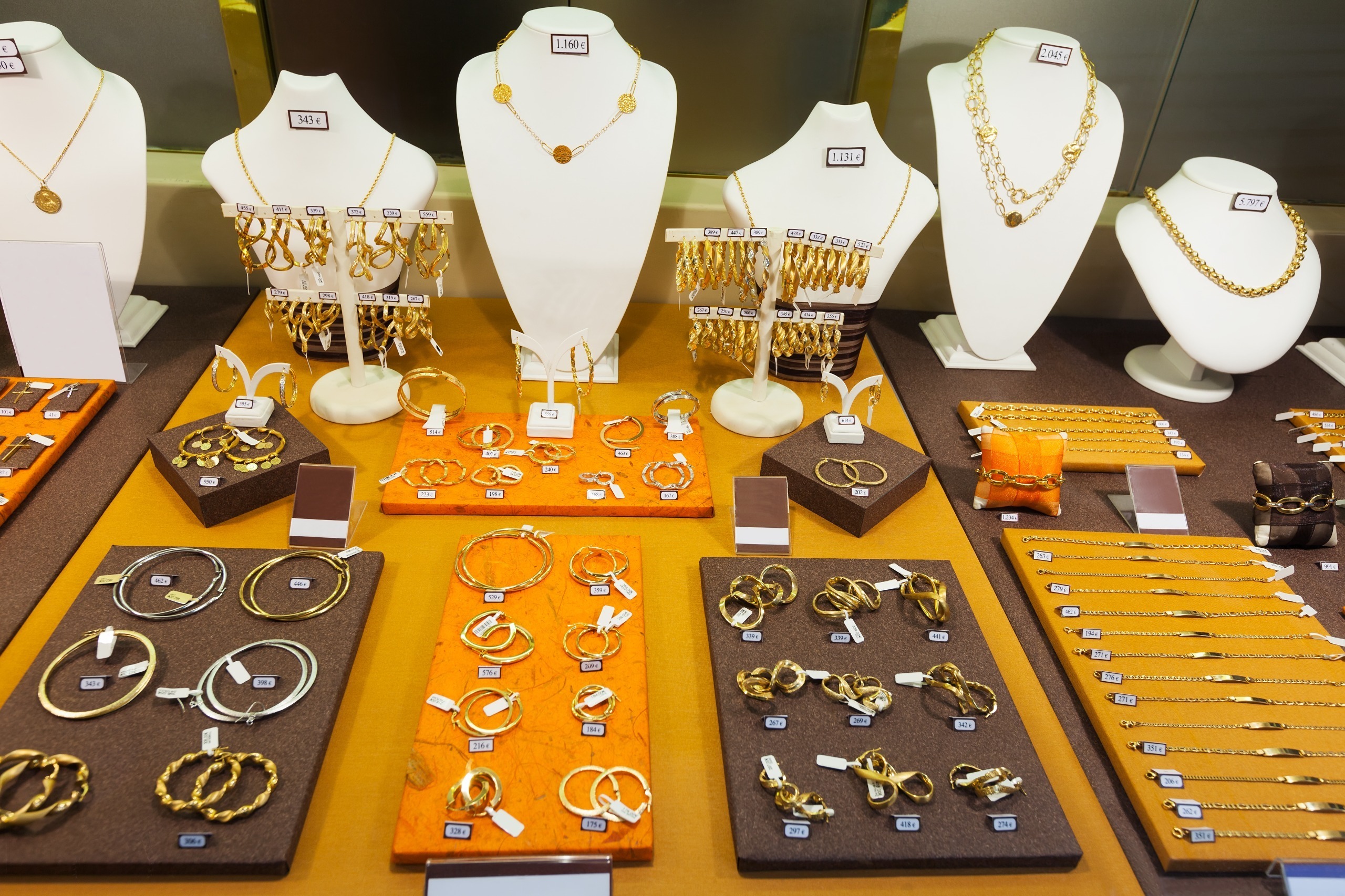Najam asks:
Does one pay zakat on gold that is worn by a woman regularly? I know we pay zakat for gold/silver that is locked up in a bank or something.
There are three popular opinions about paying Zakat on Jewelry. One that states it is never paid, another that differentiates between that worn for adornment versus that held for value, and the third that states any jewelry is liable for Zakat as long as it reaches Nisab. The more correct of these three opinions is the third, that Zakat is always paid without exception on any gold or silver that is in possession for one year or more. This is due to the generality of the hadith of Abu Hurairah found Sahih Muslim:
«…»
Never does one who possesses gold or silver not pay the due on them, except that on the Day of Judgment it will be rendered into bars and heated in the fires of Hell, and will be scorch the sides, forehead and back of the person who owned it, every time it cools it will be reheated and reapplied, on a day the length of fifty thousand years, until God judges between the slaves, either to Paradise or to the Hellfire.
The generality of this categorical and authentic hadith indicates that every piece of gold and silver has a right over it. We know these rights to be specified by the Sunnah, namely that it should reach Nisab and be in possession for a year or more. So what about the other two opinions? Well the first that no Zakat is due every would need specific evidence to exempt all jewelry, for which there is none. The second opinion introduces a ruling (namely to differentiate between two types of jewelry) which also obliges us to find a specific evidence to make that differentiation.
Additionally, there are several hadith narrated in Abu Dawud and other collections that specifically oblige Zakat on jewelry. These hadith are the subject of debate amongst scholars, and their authenticity is challenged, but it seems that together they reach the level of being acceptable. As for hadith that negate Zakat from jewelry in toto, such as There is no Zakat on jewelry then as Ibn Hajr al-Asqalani stated it is False and baseless.
Lets take a minute to analyze this second opinion practically. How much jewelry might the average women wear? Maybe a gold chain or two? A gold pendant or two? 3-4 rings? 3-4 sets of earrings? 3-4 Gold bangles? Many women with a modest amount of personal jewelry would not end up paying Zakat due to it being below the Nisab.
We can suppose most women have a mixture of different karats, pieces, etcetera which would take the amount below the Nisab. To remain on the safe side, any jewelry owned should be weighed to know if the Nisab has been reached. For women that own large amounts of Gold jewelry, then it is improbable that they wear it even once a year, and thus even according to the second opinion they would pay Zakat on it.
The issue that we run in to here is the subjectivity of what is worn and what is not, in addition to the lack of clear textual evidence to say that gold or silver worn is any different than that which is stored. In the hadith of Umm Salamah in Abu Dawud, the Prophet said That which is enough to be liable for Zakat, and Zakat was paid on it, then it is not a hoarded treasure. When he saw Aishah wearing silver he asked her Did you pay Zakat on it? When she replied in the negative he said It is more than enough of the hellfire for you.
The unequivocal nature of the hadith from Sahih Muslim above indicates that Zakat is due on all gold and silver without exception. Until we have a specific evidence to specify, the general ruling remains applicable. When researching these issues, we must remember what Allah says to his Prophet:
…
No, by their Lord, they do not believe until they return to you for a verdict in everything they differ on, then they find no hardship in their hearts towards your decision, and they submit fully.
May Allah bless us to give precedence to what he gave precedence to, and to submit fully without disdain. Ameen.
—
Don’t see what you’re looking for here? Try our Zakat page for more information.





